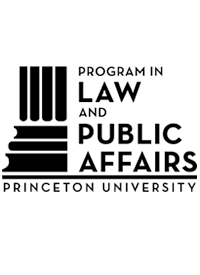
From Professor Siegel: The story of the Nineteenth Amendment includes a half-century of social movement contestation over whether permitting women to vote would destroy or democratize the American family and the American constitutional structure. This Essay revisits that story—an unfinished narrative of both disappointment and hope—in the service of identifying reasons why it relates to the lives of contemporary Americans. The overarching objective of the Essay is to suggest that the full story of the Nineteenth Amendment has always involved much more than a narrow debate over a determinate decision rule regarding women’s access to the franchise. To accomplish that objective, the Essay makes four points in four parts. It first considers which women were enfranchised when and why it matters, emphasizing the importance of an intersectional sensibility in examining that question. The Essay then considers some of the groups (men) and structures (federalism) that both impeded and facilitated woman suffrage. Next, the Essay explains the link between restrictions on woman suffrage and the social subordination of women to men, showing how the anti-subordination rationale of the Nineteenth Amendment bears on both its own interpretation and the interpretation of the Equal Protection Clause by the courts. Finally, the Essay turns to the contemporary implications of the story of the Nineteenth Amendment for American constitutional politics, including debates over the Equal Rights Amendment, unequal pay for equal work, paid family and self-care leave, and restrictions on access to contraception and abortion.
LAPA’s seminar format encourages attendees to familiarize themselves with the paper in advance. The author will open the session by summarizing the main themes in the paper and presenting some topics for discussion. Moderated Q&A follows.
Copies of the seminar paper are typically available about 10 days before the event, during regular business hours, at the LAPA Offices on the 3rd floor of Wallace Hall.
Neil S. Siegel is a constitutional law generalist. His scholarship addresses a variety of areas of constitutional law and, in doing so, considers ways in which a methodologically pluralist approach can accommodate changes in society and the needs of American governance while remaining disciplined and bound by the rule of law. His work on sex equality and reproductive rights examines how equality values are protected under both equal protection and substantive due process, and extends the skepticism of constitutional sex equality doctrine to pregnancy discrimination and restrictions on access to contraception and abortion. Siegel served as special counsel to U.S. Senator Christopher Coons during the U.S. Supreme Court confirmation hearing of Brett Kavanaugh, and advised Senator Coons during the U.S. Supreme Court confirmation hearing of Neil M. Gorsuch. He also served as special counsel to U.S. Senator Joseph R. Biden during the U.S. Supreme Court confirmation hearings of John G. Roberts and Samuel A. Alito. During the October 2003 term, he clerked for Associate Justice Ruth Bader Ginsburg at the U.S. Supreme Court. Siegel is a member of the American Law Institute and the Bar of the State of North Carolina. He received his B.A. (Economics and Political Science), summa cum laude, from Duke University; M.A. (Economics) from Duke University. He graduated with joint degrees from the University of California, Berkeley, receiving his J.D. from Berkeley Law and Ph.D. in Jurisprudence and Social Policy. While at Berkeley Law, he served as the Senior Articles Editor of the California Law Review.
More information: Contact Judi Rivkin, jrivkin@princeton.edu
Sponsored by the Program in Law and Public Affairs

